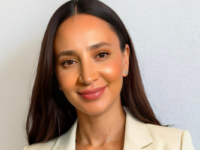This week we chat to Gabby Samkova, an adventurous young lady who was so horrified by the amount of rubbish in the ocean she encountered while surfing in Bali that she decided she wanted to do something about the number of plastic bottles from ending up in the ocean and harming our marine life. Gabby’s start-up, SomerSide, produces stylish, eco-friendly towels, each of which is made from between eight and 14 recycled plastic bottles.
ISB: How did the idea of an eco-friendly towel come about?
GS: There were two components to the idea. First was the modern-day towel needed an upgrade, microfiber towels are small and boring whereas cotton towels are impracticable outside the bathroom. I wanted a versatile towel that was both functional and uniquely designed. The second component was making it eco as single-use plastic is such a prevalent issue, which I saw first-hand whilst living in Indonesia. I didn’t want to create a towel that was just adding more plastic to the world so I researched making it sustainable and realised you could make them out of recycled plastic bottles!
ISB: And please tell us about the inspiration behind the unique designs on your towels.
GS: Each of the towels were inspired by a place around the world and I wanted them to be unique and captivating in different ways. I’ve always loved travelling and taken an interest in different cultures and places/architecture in their own style or tradition and I thought it was a great way to create something different. Our signature Moroccan Mint was a designed inspired by that Moroccan Boho look and with green being my favourite colour that was an easy decision! The Bali Botanical is a really fun design with a variety of plants against a baby pink back drop that was a trend in Bali stores. Lastly, I decided to work with Australian contemporary Indigenous artist Zachary Bennet-Brook to paint an aboriginal-style design to represent the Australian Inspiration.
ISB: What was the biggest challenge you faced in getting the enterprise off the ground?
GS: Sourcing the fabric and manufacturer was extremely challenging because it wasn’t very common, and it was a new type of fabric/towel. I was also completely out of my depth when it came to experience in how to find a manufacturer. I called numerous places in Indonesia as I was living there at the time, I also tried in Australia but they both told me they couldn’t make this type of fabric. I eventually found my manufacturer thanks to the help of my wider network – without that help I might still be looking!
ISB: I understand that you launched the business on the back of a crowdfunding campaign – please tell us how that worked and how successful it was.
GS: I launched on a crowdfunding platform called Kickstarter on 4 September with a $20,000 goal and ended up raising $37,455 in 30 days which was a great way to show the market’s interest in my product but also helped me purchase enough stock to get SomerSide off the ground. 354 people across 37 countries pre-ordered a total of around 700 SomerSide towels, allowing me to get worldwide exposure.
ISB: How do you balance sustainability, style and functionality with your products?
GS: The towels are made from 85 per cent recycled plastic bottles and the reason it isn’t 100 per cent is because it wouldn’t be as functional or as high a quality, so I do have to balance it. For example if it was 100 per cent recycled polyester the print would burn the towel and also the absorbency wouldn’t be as high which would take away from all the uses SomerSide has. It’s important that SomerSide towels still provide all the solutions to the problems people have with both Microfiber and Cotton towels. Sustainability is a core part of the ethos of SomerSide and so every decision from how it’s mailed out to display items, the environmental impact is strongly intertwined in the decision making.
ISB: And, finally, what is the number one lesson you’ve learnt on your journey you’d share with others looking to start their own business?
GS: The hardest part is always starting and often we think of an idea, or many ideas, but don’t do anything about it. I think if you truly believe you have a great idea then you should do everything in your power to get it off the ground, it’s going to be hard but that’s why not everyone does it.
















